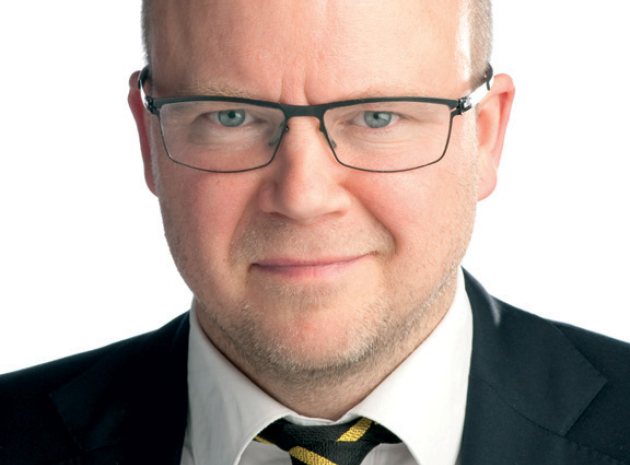It took three secondary schools before journalist Toby Young finally grasped the point of education...
I was both lucky and unlucky when it came to my secondary education. From the age of 11-16, I went to two bog standard comprehensives and pretty much the only thing I learnt was how to roll a joint. I have to accept my share of responsibility for this. I was an ornery, rebellious child, either zoning out in lessons or trying to attract attention to myself by being “funny”. I needed strong discipline and the only teacher that provided that was Mr Knight. He taught me English in the second school I went to and if I close my eyes I can still hear his voice: “If you don’t pull your socks up young man, you’ll end up in the gutter with a needle in your arm.” I got one O-level – a C in English Literature – and I remember calling my mum at work to tell her I wasn’t “academically bright”. She took this remarkably well -- not a murmur of protest, in spite of being a novelist with a First Class degree from Cambridge -- and advised me to join a workfare programme in the hope of learning a trade. I couldn’t see the point of education at that stage in my life so I decided to go along with it. After a year of washing dishes and cleaning lavatories I changed my mind. I may not have been “academically bright”, but I didn’t fancy a life of manual drudgery, either. I retook my O-levels and managed to scrape into William Ellis, a grammar school in North London. The difference was extraordinary. At the two comprehensives I’d been to, you were expected to embrace the schools’ progressive values and any dissent from that agenda was frowned upon, in a casual, unthinking way. If you questioned the prevailing, liberal-left consensus on issues like nuclear weapons or the environment you were treated as if you were just being contrarian. It was inconceivable that you might actually subscribe to a different set of values.
But at William Ellis, the staff treated me with more respect. One of the A-levels I did was Politics and if I expressed a controversial point of view the teacher would engage me in a proper discussion, forcing me to justify myself. The staff didn’t want us to be unthinking conformists who parroted the opinions of the liberal intelligentsia, but independent-minded individuals capable of making up our own minds. I’m sure this is what most teachers want for their students, but too often at comprehensives the teachers pay lip service to concepts like “critical thinking” without encouraging children to think critically about Left-wing ideas. The only values they’re encouraged to interrogate are conservative ones. At William Ellis, the staff weren’t guilty of this bias. They offered us a genuinely liberal education. That school changed my life. I don’t just mean I was able to get three A-levels and secure a place at Oxford. My whole attitude to learning changed. I realised that education isn’t just a ladder to a higher income bracket; it’s a way of escaping from the darkness into the light. Horizons expanded, vistas opened up. I had been a pygmy, imagining I was a fully-grown man. At William Ellis, I learned how to stand on the shoulders of giants. That’s very much the kind of education I want for my own children, but there aren’t any grammar schools left where I live in West London. There are some high-performing faith schools, but not many good secular comprehensives and what few there are have tiny catchment areas. So what to do?
I sat down with my wife in 2009 and concluded we had three options: move, go private or get religion. We decided to move to Suffolk, but at the last minute I baulked. Why should I have to turn my life upside down and move halfway across the country just to secure my children a good education? A proper, liberal education should be available to all children, regardless of income, ability or faith. So I decided to get together with some local parents and teachers and set up a free school. The idea was to provide children with the kind of education I’d received at William Ellis, but without the selective intake.
Boris Johnson opened the school two years later. We’re now up to 360 students and while it’s too early to say whether it’s a success, the early signs are good. We’re over-subscribed by a factor of ten-to-one and Ofsted ranked us “Good with outstanding features”. Over two-thirds of the pupils play a musical instrument and earlier this term our under-14 boys hockey team beat Dulwich College. My eldest child will enter Year 7 this September and I hope she enjoys it as much as I enjoyed William Ellis.
About the author
Journalist Toby Young is co-founder of the West London Free School, the first free school to sign a Funding Agreement with the Secretary of State for Education. He has written an eBook called ‘How to Set Up a Free School’. See Toby’s keynote speech at EICE at 12:25 on Friday 28th February (educationinnovation.co.uk)










It took three secondary schools before journalist Toby Young finally grasped the point of education...